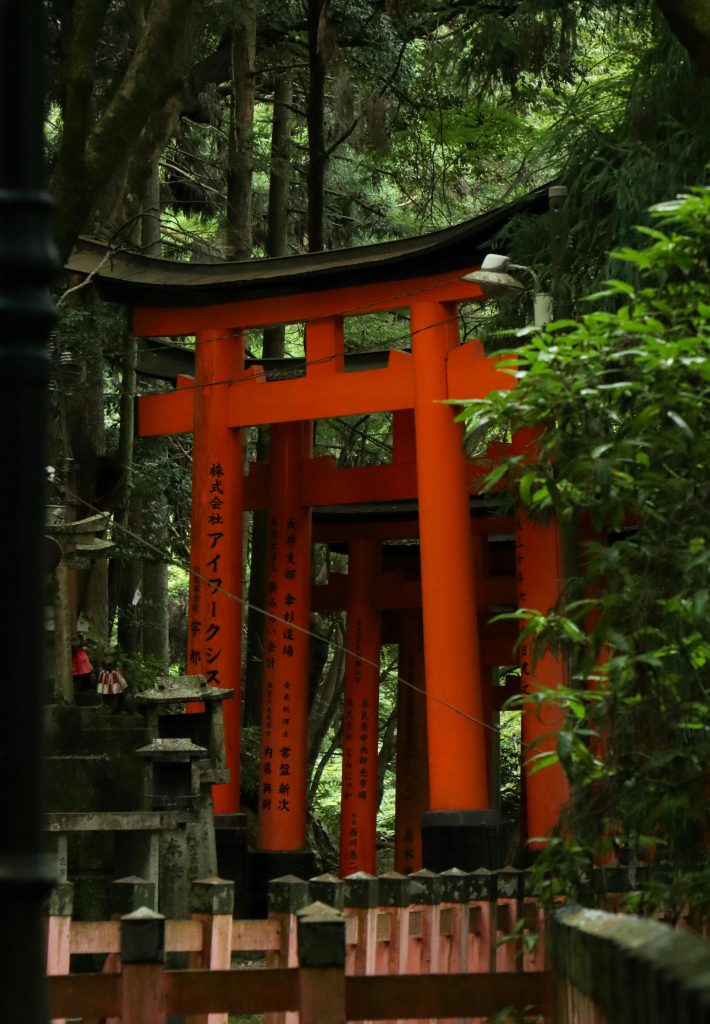Unlock Your Research Potential in the Land of the Rising Sun: JSPS International Fellowships for FY 2026 are Open!

Are you a driven postdoctoral researcher or an established scholar looking for a transformative research experience? Do you dream of collaborating with leading academics at top-tier institutions in Japan? Then fantastic news has arrived! The Japan Society for the Promotion of Science (JSPS) has officially opened its doors for the FY 2026 International Fellowship Programs!
This prestigious program offers a fantastic opportunity for researchers from around the globe to conduct cutting-edge research in Japan across a wide spectrum of fields, including natural sciences, social sciences, and humanities. Whether you’re an early-career trailblazer or a seasoned academic, there’s a tailored fellowship waiting to fuel your intellectual curiosity.
Why Choose a JSPS International Fellowship?
These fellowships are more than just funding; they are a gateway to:
- Full Financial Support: Focus on your research without the burden of financial worries. JSPS Fellowships typically include round-trip airfare, a generous monthly stipend, a settling-in allowance, a research support grant, and overseas travel insurance.
- Access to World-Class Research Environments: Collaborate with leading research groups at Japan’s renowned universities and institutes, gaining invaluable insights and access to state-of-the-art facilities.
- International Collaboration and Networking: Forge lasting relationships with Japanese researchers and become part of a global network of scholars, fostering future collaborations and expanding your professional horizons.
- A Unique Cultural Experience: Immerse yourself in the rich and fascinating culture of Japan, experiencing its traditions, innovations, and vibrant society firsthand.
- Career Advancement: A JSPS International Fellowship is a prestigious credential that can significantly enhance your academic career and open doors to future opportunities worldwide.
Key Eligibility Criteria (General Overview – Please Check Specific Fellowship Guidelines):
- You must hold a PhD (or expect to obtain one before the fellowship start date).
- You must be a citizen of a country with diplomatic ties to Japan.
- Those with Japanese citizenship or permanent residency are generally not eligible.
- For Invitational Fellowships, you typically need to hold a professorial or equivalent position and have a strong research track record.
For Invitational Fellowships [L/S]:
- Must have a professor/associate professor-equivalent status.
- Must be affiliated full-time with a foreign institution.
- Must have a strong record of research contributions.
Categories Offered in FY 2026
| Fellowship Name | Duration | Who It’s For | Application Deadlines (to JSPS) |
|---|---|---|---|
| Postdoctoral Fellowship [P] | 12–24 months | Early-career postdoctoral researchers | Aug 29, 2025 & Apr 28, 2026 |
| Postdoctoral Short-Term [PE] | 1–12 months | Pre/Postdocs from Europe, US, Canada | Sept 26, 2025, Jan 9, 2026, & June 5, 2026 |
| Invitational Fellowship – Long-Term [L] | 2–10 months | Senior academics with substantial track record | Aug 29, 2025 |
| Invitational Fellowship – Short-Term [S] | 14–60 days | Established researchers for lectures/exchanges | Aug 29, 2025 & Apr 28, 2026 |
Financial Benefits
All fellowships come with comprehensive funding, including:
- Roundtrip international airfare
- Monthly stipend:
- ¥362,000/month for Postdoctoral Fellows
- ¥387,600/month for Long-Term Invited Fellows
- ¥18,000/day for Short-Term Invited Fellows
- Settling-in Allowance: ¥200,000
- Research Support Grant (up to ¥150,000 for applicable categories)
- Overseas travel insurance.
Ready to Embark on Your Japanese Research Adventure?

The application process typically involves securing a host researcher and institution in Japan who will support your application.
Application Dates for FY 2026
| Fellowship | Call | Application Deadline | Result Announcement | Arrival Period |
|---|---|---|---|---|
| [P] | 1st | Aug 29, 2025 | Late Dec 2025 | April–Sept 2026 |
| [P] | 2nd | Apr 28, 2026 | Early Aug 2026 | Sept–Nov 2026 |
| [PE] | 1st | Sept 26, 2025 | Early Jan 2026 | Apr–Mar 2027 |
| [PE] | 2nd | Jan 9, 2026 | Mid May 2026 | Apr–Mar 2027 |
| [PE] | 3rd | June 5, 2026 | Late Sept 2026 | Dec–Mar 2027 |
| [L/S] | 1st | Aug 29, 2025 | Late Dec 2025 | Apr–Mar 2027 |
| [S] | 2nd | Apr 28, 2026 | Early Aug 2026 | Oct–Mar 2027 |
Don’t miss this incredible opportunity to advance your research in a dynamic and innovative environment. Start exploring the JSPS International Fellowships for FY 2026 today and take the first step towards an enriching and impactful research experience in Japan!
Your groundbreaking research in Japan awaits!
Chasing Cherry Blossoms and Breakthroughs: What’s It Like Getting into Research Programs in Japan?
“Konnichiwa!” So, you’re dreaming of conducting your research in Japan, a land renowned for its technological advancements, rich culture, and meticulous approach to everything, including scientific inquiry. But what’s the journey like to actually land a spot in a Japanese research program? Let’s unpack the process and give you a realistic picture.

The Prestige and the Potential:
First off, let’s acknowledge why Japan is an attractive destination for researchers worldwide. The country boasts world-leading universities and research institutions, particularly strong in fields like engineering, materials science, robotics, medicine, and fundamental sciences. Imagine working alongside brilliant minds, utilizing cutting-edge facilities, and contributing to innovations that could shape the future. The potential for growth and impact is significant.
Navigating the Entry Points:
There isn’t one single “on button” to enter research in Japan. The pathway often depends on your current academic level and goals:
- Undergraduate Research Internships: For Bachelor’s students, programs like the University of Tokyo Research Internship Program (UTRIP) or the Okinawa Institute of Science and Technology (OIST) Research Internship Program offer short-term, intensive research experiences. These are highly competitive but provide an invaluable taste of Japanese research culture.
- Research Students (Kenkyusei): This is a common pathway for international students aiming for Master’s or PhD programs. As a kenkyusei, you’ll enroll as a non-degree student, allowing you to conduct research under the guidance of a professor and prepare for the university’s entrance exams. Think of it as a preparatory year.
- Direct Enrollment in Graduate Programs (Master’s/PhD): If you meet the academic requirements and language proficiency, you can directly apply to Master’s or Doctoral programs at Japanese universities. This typically involves a rigorous application process and entrance examinations.
- Postdoctoral Fellowships: For those who have already earned their PhD, programs like the JSPS International Fellowships (as highlighted in our recent blog!) offer generous funding to conduct research at Japanese institutions.
The Application Landscape: What to Expect:
Regardless of the entry point, be prepared for a process that values thoroughness and attention to detail:

- Finding a Supervisor is Key: Especially for kenkyusei and graduate programs, establishing contact with a professor whose research aligns with your interests is often the first crucial step. You’ll need to impress them with your background and research proposal.
- Academic Excellence: Japanese universities have high academic standards. Expect to submit transcripts, recommendation letters, and potentially standardized test scores (like TOEFL or IELTS for English programs, or the Examination for Japanese University Admission for International Students – EJU for Japanese-taught programs at the undergraduate level).
- Research Proposal: For graduate studies and fellowships, a well-defined and compelling research proposal is essential. It needs to showcase your research question, methodology, and its potential contribution to the field.
- Language Proficiency: While many graduate programs, particularly in STEM fields, offer courses in English, having some level of Japanese proficiency can significantly enhance your daily life and integration into the research environment. Be sure to check the specific language requirements of your chosen program.
- Entrance Examinations: For direct entry into Master’s or PhD programs, you’ll likely need to pass entrance exams that may include written tests in your field, Japanese and/or English language proficiency, and oral interviews.
- Visa Requirements: As an international student or researcher, you’ll need to navigate the Japanese visa application process, which requires careful preparation of documents and adherence to specific regulations.
Challenges and Rewards:
Getting into a research program in Japan can be competitive. The application processes can be demanding, and the cultural and linguistic differences might present initial hurdles. However, the rewards of conducting research in Japan are immense:
- Access to Cutting-Edge Research: Be at the forefront of innovation in your field.
- Mentorship from World-Renowned Experts: Learn from the best in your area of study.
- Global Networking Opportunities: Build connections that can shape your future career.
- A Unique Cultural Immersion: Experience the beauty and intricacies of Japanese society.
Tips for Success:
- Start Early: Begin your research on programs and potential supervisors well in advance of application deadlines.
- Network: Attend virtual or in-person conferences and connect with researchers in your field.
- Tailor Your Application: Customize your application materials to each specific program and supervisor.
- Be Persistent: Don’t get discouraged by initial setbacks. The application process can take time and effort.
- Prepare Thoroughly: Pay close attention to all application requirements and deadlines.
- Learn Basic Japanese: Even a basic understanding of the language will be beneficial.
Embarking on a research journey in Japan is a challenging yet incredibly rewarding endeavor. The dedication and effort you put into the application process will be well worth the opportunity to learn, grow, and contribute to the world of knowledge in a truly unique and inspiring setting. “Ganbatte kudasai!” (Good luck!)